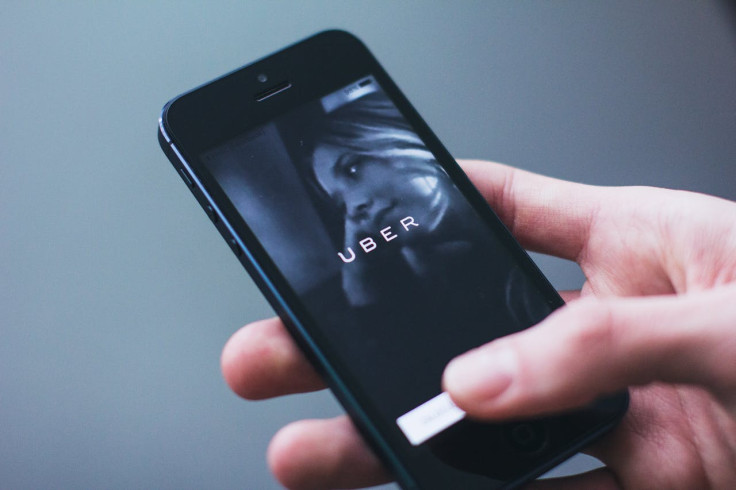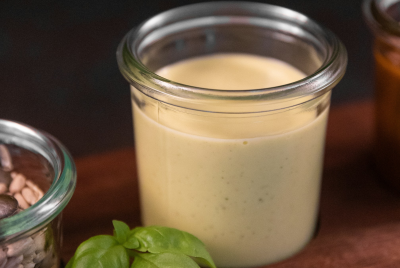Read Before You Click 'Agree'! New Jersey Accident Victims Can't Sue Uber Due To UberEats Fine Print
The couple argue their minor daughter accepted the terms on their behalf

A New Jersey court ruled that a married couple who were in a severe accident during an Uber ride cannot sue the company. This is because they, and their daughter agreed to arbitration when they accepted the terms of service for a separate service using Uber Eats.
John and Georgia McGinty were seriously injured in a car accident in March 2022. The accident occurred when their Uber driver sped through a red light and was hit by another car. The couple suffered "serious physical, psychological, and financial damages," according to a court filing.
Georgia suffered severe injuries in the accident, including multiple fractures in her cervical, lumbar, and spine areas, as well as broken ribs. She required surgeries and other medical treatments. John also sustained injuries, including a fractured sternum and limited use of his left wrist.
The McGinty Case: A Battle Against Arbitration
The McGintys attempted to sue Uber for a jury trial but were unsuccessful. An appellate court ruled they were bound by the arbitration agreement they had previously accepted when they agreed to Uber's updated terms and conditions.
The agreement mentioned above applies to both Uber Eats and Uber ride services. The McGintys argued that their minor daughter had accidentally agreed to Uber Eats' terms of service while using Georgia's phone.
They claimed she had clicked a button to verify her age as 18, even though she was younger. However, the appellate court ruled that Uber's terms and conditions were "valid and enforceable." One of the terms in this clause states that disputes related to auto accidents or personal injuries would be resolved through binding arbitration instead of a court of law.
In response to McGintys' claim, Uber told CNN that Georgia McGinty had "agreed to Uber's terms of use, including the arbitration agreement, on multiple occasions." This included early 2021, and she had continued to take Uber rides after agreeing to these terms.
"While the plaintiffs continue to tell the press that it was their daughter who ordered Uber Eats and accepted the terms of use, it's worth noting that in court, they could only 'surmise' that that was the case but could not recall whether 'their daughter ordered food independently or if Georgia assisted,'" an Uber spokesperson said.
The McGintys expressed their disappointment and sadness in a statement to CNN. They said they were surprised and heartbroken by the appellate court's decision, which had further increased the pain and suffering they had endured since the accident.
"We are horrified at what the court's decision suggests: A large corporation like Uber can avoid being sued in a court of law by injured consumers because of contractual language buried in a dozen-page-long user agreement concerning services unrelated to the one that caused the consumers' injuries," the McGintys said.
Before the recent September ruling, a lower court ruled that Uber's arbitration clause was not enforceable. The court stated that the pop-up with the terms of service did not clearly and unambiguously inform the plaintiff that she was waiving her right to pursue her claims in a judicial forum.
Uber appealed the lower court's decision regarding the arbitration clause. The appellate court agreed with Uber and ruled that its terms of service were enforceable. The McGintys' attorneys stated that they are reviewing the appellate court's decision and are considering petitioning the New Jersey Supreme Court for further review.
This is not the first time Uber has faced negative headlines due to incidents involving its services. In 2017, a delivery driver for Uber Eats shot and killed a customer.
The Growing Debate Over Terms Of Service
This recent case involving Uber and the McGintys is just the latest example of the growing debate surrounding terms of service and their binding arbitration agreements.
In August, Disney reversed course on a similar dispute, agreeing to allow a wrongful death lawsuit to proceed to court. The case involved the widower of a woman who died after eating at a resort restaurant.
In the lawsuit, plaintiff Jeffrey Piccolo alleged that his late wife, Kanokporn Tangsuan, suffered a fatal allergic reaction from a meal she ate at a park restaurant in 2023. Disney attempted to dismiss the lawsuit by asking the court to move the dispute to arbitration, which would have prevented the case from going to trial before a jury.
Disney argued that Piccolo allegedly entered into a subscriber agreement years ago when signing up for a Disney+ trial. This agreement required users to arbitrate all disputes with the company. However, Disney later changed its position on this matter.
"At Disney, we strive to put humanity above all other considerations. With such unique circumstances as the ones in this case, we believe this situation warrants a sensitive approach to expedite a resolution for the family who have experienced such a painful loss," Josh D'Amaro, the chairman of Disney Experiences, said in a previous statement.
© Copyright IBTimes 2025. All rights reserved.






















